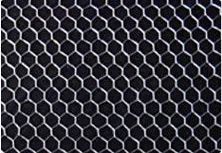Understanding the Costs of Highway Sound Walls
Highway sound walls, also known as noise barriers, are critical structures designed to reduce noise pollution from vehicular traffic. As urban areas expand and traffic increases, the necessity for these sound barriers becomes more evident. However, one of the key questions that arises concerning sound walls is their cost. Understanding the various factors impacting the costs of highway sound walls is essential for effective planning and budgeting.
Factors Influencing the Cost
1. Material Choices The cost of sound walls heavily depends on the materials used. Common materials include concrete, wood, vinyl, and earth berms. Concrete walls are durable and often the most effective for noise reduction, but they can also be the most expensive option. Alternatively, wooden walls might be more affordable, but they may require more maintenance and have a shorter lifespan.
2. Design and Height The design of the sound wall, including its height and acoustic performance, plays a crucial role in cost. Higher walls are generally more expensive due to the additional materials and engineering required. Custom designs that incorporate aesthetic features or additional sound-absorbing technologies can significantly drive up costs.
3. Site Conditions The geographical and environmental conditions of the proposed site impact construction costs. Sites with challenging terrain or complex soil conditions may necessitate additional engineering efforts, equipment, and labor, thereby increasing overall expenses.
4. Length of the Barrier Naturally, the longer the sound wall, the higher the cost. Projects are often measured by linear foot, and as the length increases, material and labor costs accumulate, leading to a substantial total expenditure.
highway sound wall cost

5. Labor Costs Labor costs vary significantly based on location, availability of skilled labor, and the complexity of the installation process. Urban areas may see higher labor costs compared to rural regions. Moreover, if construction occurs during peak traffic times, additional measures might be necessary to ensure safety, further increasing expenses.
6. Regulatory Compliance Navigating local regulations and obtaining necessary permits can also influence the overall cost. Different states and municipalities may have varying requirements for environmental assessments and construction standards. Ensuring compliance not only adds time to the project but can also incur additional costs.
Average Costs
While it's challenging to provide a precise figure due to the numerous variables involved, average costs for highway sound walls typically range from $15 to $40 per square foot. For a standard sound wall, this could translate to a minimum total cost of tens of thousands of dollars, depending on the factors discussed above.
Conclusion
The installation of highway sound walls is a significant investment in community well-being and environmental quality. When considering such projects, understanding the various cost determinants is essential for accurate budgeting and implementation. As communities continue to grow and evolve, addressing noise pollution through strategic investments in sound barriers will remain an important aspect of urban planning and public health.
-
Versatility of Expanded Aluminum Metal for Various Applications
NewsMay.19,2025
-
The Geometry of Steel Gratings: Why It Matters
NewsMay.19,2025
-
Reinforcement Applications of Perforated Mesh in Masonry
NewsMay.19,2025
-
Essential Tools for Installing a Deck Mesh Railing
NewsMay.19,2025
-
Anti-Slip Flooring Made with Stainless Expanded Mesh
NewsMay.19,2025
-
Adjustable Steel Grating for Uneven Terrain
NewsMay.19,2025
Subscribe now!
Stay up to date with the latest on Fry Steeland industry news.

